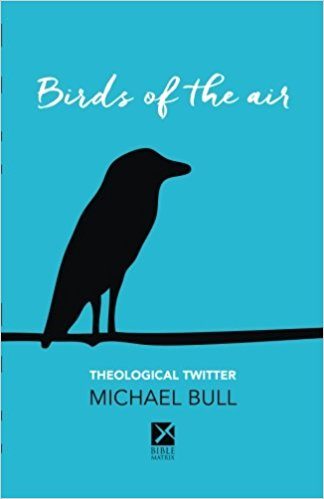So I like to read, and consequently I have continued to do so. The list of books I read in 2017 is now posted here.
I also like to let people know when I have read a hot one, and so that is why I have a monthly feature informatively called The Book of the Month. To review, the eleven books of the month that I posted this last year were (who does July anyway?):
January was Andrew Klavan’s testimony, The Great Good Thing. February brought you Paul Among the People, which was really interesting. I read Rejoicing in Christ by Michael Reeves because he was joining us for Grace Agenda last year. It was really good and so I selected it for March. Deeper Magic is an astute summary of the systematic theological system found in C.S. Lewis’s works, and was my pick for April. If you are among that benighted class that somehow thinks that the Marrow controversy doesn’t really matter, Sinclair Ferguson was here in May to set you straight with The Whole Christ. My favorite (living) papist writer is Anthony Esolen, and so I selected his book Out of the Ashes in June.
There was nothing for July because who does July? Not me apparently. I most likely forgot.
My daughter Bekah wrote the book I selected for August. It is a book written for high school students who are receiving a classical Christian education, and who have more than once asked themselves why for is that? Her book is Classical Me Classical Thee. September was The Moral Case for Fossil Fuels, and the title tells you everything you likely need to know. There is such a case, and it is compelling. In October I picked a biography of a book—C.S. Lewis’s Mere Christianity/A Biography. The Grace of Shame was next, and is really helpful in identifying how lame the church is being on the issues surrounding the sexual revolution. In December, I chose Antifragile. Provocative it was.
If someone were to press me, and ask which is the book of the year out of the list given above, I would have to say The Moral Case for Fossil Fuels. When we consider all the problems in the church today, it might seem weird to pick a book like that for the front spot. But it seems to me that with our other problems, we do have articulate voices in opposition (even if they are voices in the wilderness). But on the moral case for fossil fuels, the church is largely clueless, missing in action,
But let me do this thing by another metric—not “instead of” this, but layered on top of it. I will subtract all the books of the month, and go through the books I read this last year, and recommend three of them for you. How’s that sound? And then, as an extra bonus I will select a free agent book of the year.
John Piper’s God is the Gospel is magnificent. I read it a number of years ago, and when I was done I went back to the front and read it all again. It was that good. I read it again this last year as part of the devotional reading that Nancy and I do in the morning. J.I. Packer’s Knowing God is rightfully a classic. I read it decades ago when it was still new, and just read it again this last year. It is really rich—theological cheesecake. And to stay on the same theme, I also read Tozer’s The Pursuit of God, which remains really good. When I was in the Navy, I was on a Tozer jag and read a bunch of him then, including this one I think. At any rate, I read it ages ago sometime. Still very good.
And now, coming out of the left field bleachers, here is my selection of Book of the Year. I would select Michael Bull’s Birds of the Air—a collection of his tweets. Yes, as a collection of tweets, it is not a book that holds up to a sustained read. But there are at least a couple of fistfuls of “theological twitter” here where each individual observation is alone worth the price of the book. And for paedobaptists like myself, dealing with his ardent baptist convictions that show up from time to time is a small price to pay. We were not put into this world for pleasure alone.
Here are just a few:
The Church should be curing biblical illiteracy, not pandering to it.
Godly conversations around the dinner table with your kids end up toppling godless empires.
Fathers, your job is to keep everyone else’s tank full, so you’d better be a refinery.
It’s not that I hate Christian academics who don’t believe Genesis. I just think they are devils who should be publicly beaten with rods.
Whenever the Word of God comes, it is the end of business as usual.

